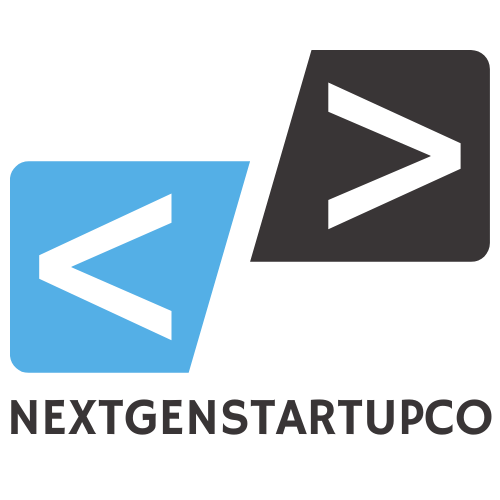In a world where manufacturing is often seen as a complex puzzle, Software as a Service (SaaS) swoops in like a superhero with a cape made of cloud computing. Gone are the days of juggling spreadsheets and drowning in paperwork. With SaaS, manufacturers can streamline operations, boost productivity, and maybe even find time for that elusive coffee break.
Table of Contents
ToggleOverview of SaaS for Manufacturing
SaaS transforms manufacturing operations by leveraging cloud technology. This model allows manufacturers to access software applications over the internet without extensive capital expenditure. Employees can easily integrate these tools into existing workflows, boosting overall productivity.
Data management improves significantly with SaaS solutions. Real-time data tracking enables manufacturers to monitor performance metrics and key performance indicators. Inventory management becomes more efficient, reducing excess stock and lowering carrying costs.
Collaboration across teams enhances with SaaS. Employees can share documents and communicate seamlessly, regardless of their physical location. This real-time collaboration leads to quicker decision-making processes.
Customer relationship management benefits from SaaS integration. Manufacturers can capture customer data, leading to improved service and product offerings. Satisfied customers often translate into repeat business, driving sales growth.
Security measures often stand out in SaaS platforms. Most providers offer robust cybersecurity features, such as data encryption and regular backups. Manufacturers can focus on core operations while trusting their data is secure.
Scalability proves essential in the manufacturing sector. SaaS applications can adjust to the changing needs of a business, whether scaling up or down. This flexibility supports manufacturers in adapting to market demands efficiently.
Cost-effectiveness remains a primary advantage of SaaS. Subscription pricing models eliminate hefty upfront costs, allowing manufacturers to invest in additional resources. An overall reduction in IT maintenance and infrastructure expenses enhances financial performance.
Key Benefits of SaaS in Manufacturing

SaaS brings significant advantages to the manufacturing sector, enhancing efficiency and performance across various operations.
Cost Efficiency
Cost efficiency stands as a major benefit. Subscription pricing reduces upfront costs for software deployment. Manufacturers no longer incur expenses related to hardware purchases. Ongoing IT maintenance costs diminish due to the cloud environment managed by service providers. Companies can allocate funds toward core business initiatives instead. According to a report from McKinsey, organizations can save up to 30% in operational expenses through effective SaaS adoption.
Scalability
Scalability represents another key advantage. SaaS solutions provide the flexibility to grow alongside the business. As demand fluctuates, manufacturers can easily adjust their subscription plans. Customization options cater to specific operational needs, ensuring that businesses only pay for what they need. Growth isn’t limited by infrastructure constraints, enabling manufacturers to respond rapidly to market changes. This adaptability allows for smoother transitions during periods of expansion.
Accessibility
Accessibility plays a crucial role in daily operations. SaaS applications are accessible from various devices with internet connectivity. Workers can retrieve vital information from anywhere, promoting higher productivity levels. Real-time data sharing encourages collaboration among teams, regardless of geographic location. According to a survey by PwC, 86% of cloud users report that cloud-based tools significantly enhance accessibility for remote teams. This feature empowers manufacturers to stay connected and informed, ultimately improving overall decision-making.
Challenges in Implementing SaaS Solutions
Implementing SaaS solutions in manufacturing presents various challenges that require consideration and planning.
Data Security Concerns
Data security remains a primary concern for manufacturers adopting SaaS. Manufacturers must ensure sensitive data is protected from unauthorized access. Regular audits and compliance with industry standards help mitigate these risks. Encryption techniques and secure data transmission enhance security measures. A survey indicates that 78% of manufacturers worry about data breaches when utilizing cloud services. Recognizing the potential vulnerabilities associated with SaaS is essential for fostering confidence among stakeholders. Organizations often prioritize security training for employees to minimize human error, which can lead to data leaks.
Integration with Existing Systems
Integrating SaaS solutions with existing systems poses additional challenges for manufacturers. Legacy systems often lack compatibility with modern SaaS applications. Manufacturers find that planning for a seamless transition requires comprehensive analysis of current processes and software architecture. Custom APIs or middleware become necessary to connect disparate systems effectively. Difficulty in data migration can lead to delays and additional costs, impacting overall efficiency. A report highlights that nearly 60% of organizations experience obstacles in system integration when implementing SaaS solutions. Addressing these integration concerns is vital for maximizing the intended benefits of SaaS in manufacturing.
Leading SaaS Solutions for Manufacturing
Several SaaS solutions are redefining the manufacturing landscape. These platforms enhance efficiency through innovative features tailored for the industry.
Solution A
NetSuite stands out as a comprehensive cloud ERP solution tailored for manufacturing. It enables manufacturers to manage financials, inventory, and order processing seamlessly. Users gain real-time visibility into business performance, allowing for informed decision-making. NetSuite’s scalable pricing model adapts to varying business needs, ensuring manufacturers only pay for what they use. In a McKinsey report, organizations implementing NetSuite report operational savings averaging 30%. With integrated CRM functionality, manufacturers can nurture customer relationships effectively, driving sales growth. Accessing the platform from any device promotes collaboration, enhancing productivity across teams.
Solution B
SAP Business ByDesign offers a robust, all-in-one software solution optimized for manufacturing operations. Companies utilize its capabilities for project management, supply chain monitoring, and production planning. Flexible subscription plans accommodate businesses of all sizes, making it a cost-effective choice. Users appreciate the platform’s built-in analytics, providing insights into performance metrics that drive continuous improvement. According to PwC, 86% of cloud users experience better accessibility for remote teams with SAP Business ByDesign. This accessibility enables users to share information quickly, leading to enhanced communication and faster decision-making across the organization.
SaaS is reshaping the manufacturing landscape by enhancing productivity and efficiency while minimizing costs. With its cloud-based architecture manufacturers can access essential tools anytime and anywhere. This flexibility supports better collaboration and quicker decision-making across teams.
The benefits of SaaS extend beyond operational improvements to include robust security measures and scalability tailored to evolving business needs. As manufacturers embrace these solutions they position themselves for growth and innovation in a competitive market.
By addressing implementation challenges and prioritizing data security manufacturers can unlock the full potential of SaaS. This strategic shift not only streamlines operations but also empowers businesses to thrive in an ever-changing environment.



